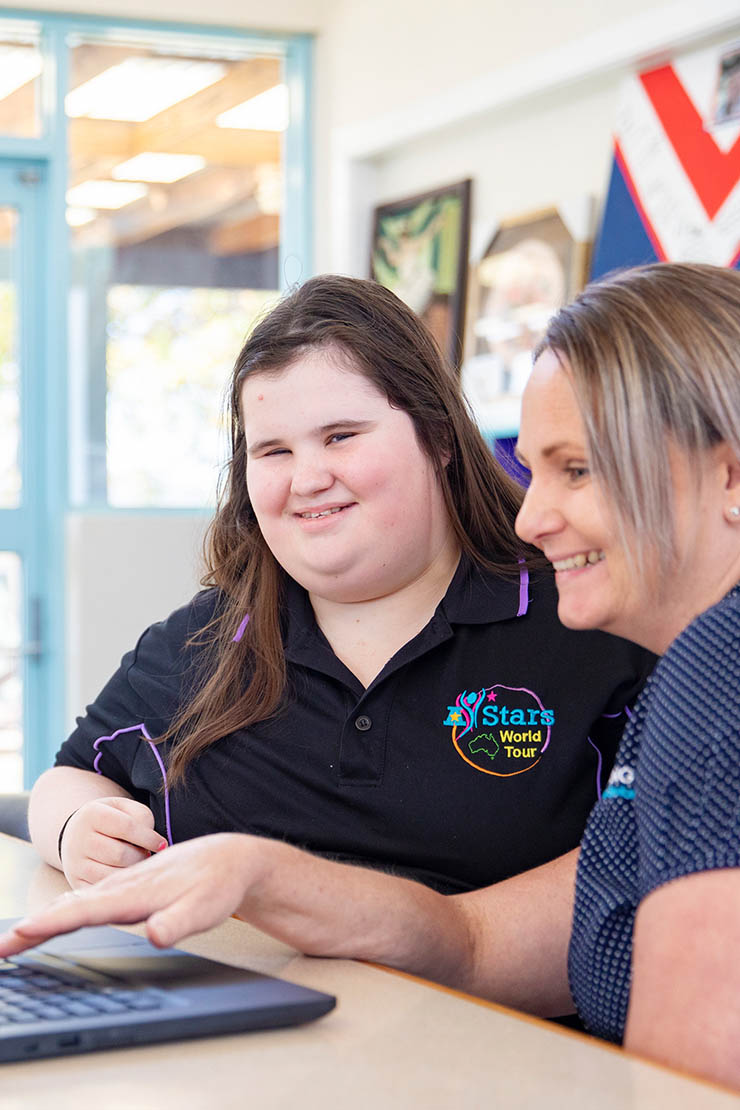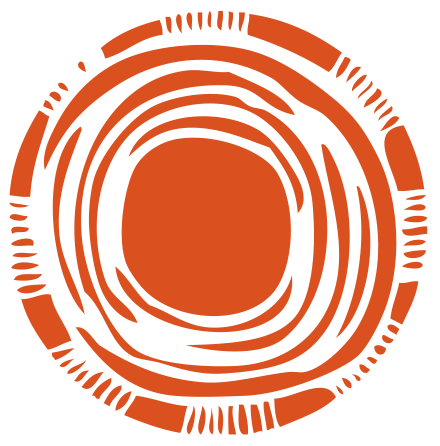COVID-19 FAQs
Challenge Community Services is continually assessing the potential impacts of COVID-19 on our services with the health and safety of our clients, carers, families, and staff foremost in our minds.
Updated: 22 February 2021
The Australian government has released a national COVID-19 vaccine roll-out strategy. This is a three-phased approach prioritising different population groups across Australia to receive the vaccine.
This means, people who have been identified as needing the vaccine the most will receive it first (i.e. Phase 1a) and other population groups who are the next urgent priority will be the second group to receive it (i.e. Phase 1b etc.).
The roll-out of Phase 1a of the vaccine will commence from today, Monday 22 February 2021.
Who is included in Phase 1a of the vaccine roll-out?
People with disability and workers eligible under Phase 1a of the roll-out include:
- A person with disability living in residential accommodation (in settings with two or more people with disability only)
- A paid worker providing support to people living in residential accommodation with two more people with disability.
People with disability and workers eligible under Phase 1b of the roll-out include:
- Adults with an underlying medical condition, including those with a disability
- Other health care workers (disability workers to be determined).
Many people with disability living in group residential support settings will get their vaccination at their residence. In-reach vaccination teams, managed by the Australian Government, will provide these vaccinations.
Later this year, people will be able to access vaccinations at:
- GP respiratory clinics
- General practices that meet specific requirements
- Aboriginal Controlled Community Health Services
- State-run vaccination clinics, and
- Pharmacies.
All locations offering COVID-19 vaccination should be accessible, including physical access and communication.
Home visits may be available for people who are unable to visit a COVID-19 vaccination location on a case-by-case basis. Details will be made available later this year.
Some people with disability are at greater risk of becoming very sick if they catch COVID-19. Getting vaccinated against COVID-19 is a safe and effective way of protecting you, your family and the community. It also protects other people who may not be able to be vaccinated.
COVID-19 vaccines are free for everyone in Australia.
The COVID-19 vaccine is voluntary. You can choose whether to have the vaccination or not
Challenge strongly encourages all customers and staff to get the COVID-19 vaccine when it is available to them. The COVID-19 vaccine has completed rigorous scientific and regulatory process reviews by the Therapeutic Goods Administration (TGA) and is now approved for safe use in Australia.
We have been taking preventive measures at Challenge against COVID-19 for several months to help keep you, your loved ones, and our staff safe. The COVID-19 vaccine is the next step in adding an extra layer of protection against COVID-19, and also protects your family, friends and communities.
Challenge, however, will not make the vaccine mandatory for any client, nor will your vaccine status affect your access to any of our services.
Like any other medication, you or your loved one will need to give consent to the health practitioner who will be administering the vaccine.
For clients living in one of our accommodation services, your Supervisor will support you so that you or the person responsible for your decisions can provide this consent. It is important to understand, however, that Challenge staff cannot consent on your or your loved one’s behalf.
The Department of Health has published a dedicated web page for people with disability.
This page will be regularly updated as more details are confirmed.
On this page you will find the following information:
- Why you should get vaccinated for COVID-19
- You can choose if you want to get vaccinated for COVID-19
- When you will get your COVID-19 vaccine
- Where you will get your COVID-19 vaccine
- COVID-19 vaccination and the annual flu vaccine
- Attending COVID-19 vaccination appointments
- COVID-19 transmission after vaccination
- Vaccination of your support workers
- Getting support if you choose not to be vaccinated against COVID-19
- Providing consent
- Auslan videos
- Continue COVIDSafe practices
If you have questions about the vaccine that aren’t answered on the webpage listed above or by your Challenge Supervisor, please call the National Coronavirus Helpline on 1800 020 080.
Alternatively, you can talk to your doctor or medical provider who can give you more information.
Updated: 22 February 2021
Challenge Day Programs reopened from Monday 1 June, 2020, following the implementation of the Challenge COVIDSafe Plan.
Each Day Program is operating on a case-by-case basis determined by the size of the site and number of clients. We are actively seeking activities to undertake outdoors or in the community to increase our Day Program capacity.
Day Programs will be a little different to what we are used to as we continue to prevent the spread of COVID-19 in our communities.
The Challenge COVIDSafe plan includes additional measures to keep our clients and staff members safe and healthy.
This plan includes:
- Being able to maintain a 1.5-metre physical distance
- Wearing PPE when physical support such as personal care is required
- Ensuring we have only one person present for every 4 square metres
- Reducing the number of clients transported at one time
- Screening clients via phone prior to providing drop-in support or community access
- Continuing excellent hand and respiratory hygiene
- Checking temperatures prior to entering a site, after lunch and before leaving a site
- Ensuring clients and staff stay home when unwell
Following strict protocol if a client or staff member tests positive for COVID-19.
Our Supported Independent Living services are continuing as normal with the following additional health precautions:
- Strict hygiene procedures are in place
- All non-essential visitors and community outings have been restricted
- Additional funding has been provided to each house to ensure clients have activities to do inside the home
- Strict protocols, in line with Department of Health directives, are in place if a client contracts COVID-19
- Levels of food and household items are monitored to ensure each home has adequate amounts to last 14 days if someone needs to self-isolate.
Challenge recognises that many of our clients and families are feeling anxious, stressed or concerned during this uncertain time.
If you need help seeking mental health support during COVID-19, please speak with your support coordinator or supervisor of the service you receive.
Challenge Therapeutic Services are providing consultations via both face-to-face appointments or by Telehealth (phone or video). For more information, please call the friendly team on 1800 795 411.
We have established this COVID-19 information hub on our website dedicated to information about our steps to protect our customers, changes to our services and frequently asked questions.
If you have further questions that are not addressed on our website, please contact the supervisor of the service you receive.
The NDIS Price Guide and Support Catalogue 2020–21 includes information to help providers continue to support participants and meet current public health guidelines.
Temporary arrangements included in the updated Price Guide:
- personal protective equipment (PPE) for certain workers and participants in Victoria extended until 30 November 2020 and NSW extended until 31 October 2020
- one-off deep cleaning for support worker related COVID-19 diagnosis
- ongoing increased access to support coordination
- Supported Independent Living (SIL) supports for participants who are required to quarantine or self-isolate
For more information visit the NDIS providers information page here
The NDIS have made temporary COVID-19 measures to support participants during the pandemic including:
- General measures
- Action plan to ensure NDIS participants and their families continue to receive the essential disability supports they need.
- Proactive outreach to high-risk participants and sharing of data with states and territories to ensure continuity of supports.
- Plans and plan reviews
- NDIS plans to be extended by up to 24 months, ensuring continuity of support and increasing capacity of NDIA staff to focus on urgent and required changes to plans.
- Face-to-face planning shifted to telephone meetings where possible.
- Increased flexibility within your budgets to purchase disability-supports.
- Accessing the NDIS
- We have made our ARF and Supporting Evidence Form available for download on our website.
- Personal protective equipment (PPE)
- For participants living under restrictions, we have added PPE measures to keep you safe. Visit the PPE page for detailed information.
- Supported Independent Living
- To support participants living in Supported Independent Living arrangements during the coronavirus (COVID-19) pandemic, we have introduced two new support items for cleaning services and higher intensity support.
For more information visit the NDIS and Disaster Response page here
Advice from Australian federal and state health authorities may result in changes to our services.
Our Executive Leadership Team will continue to monitor, and follow government advice. We will communicate any further changes to our clients and staff as soon as possible.
Please speak to the supervisor or manager of your service.
To download the FAQs in an easy to read format please see this linked document.



